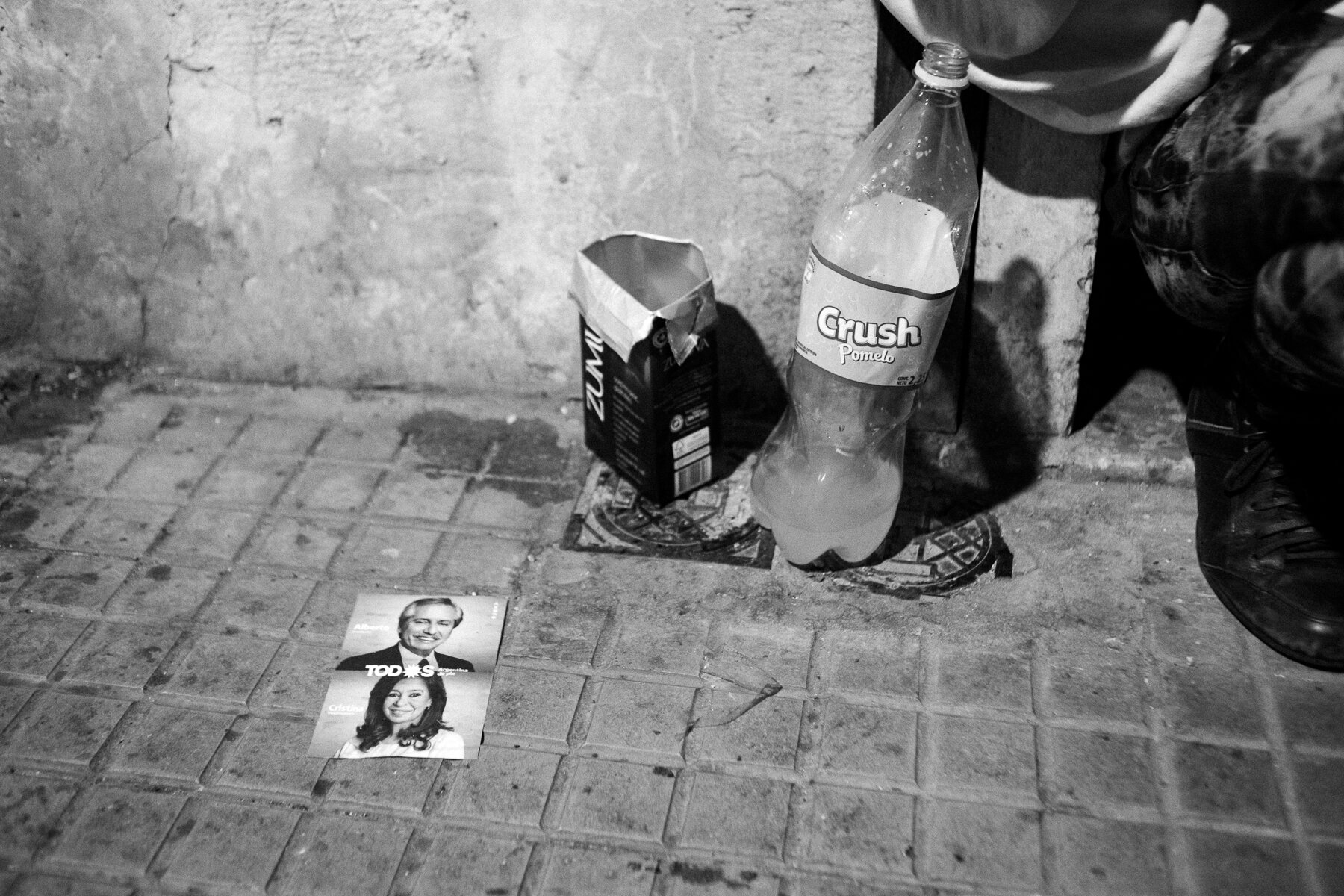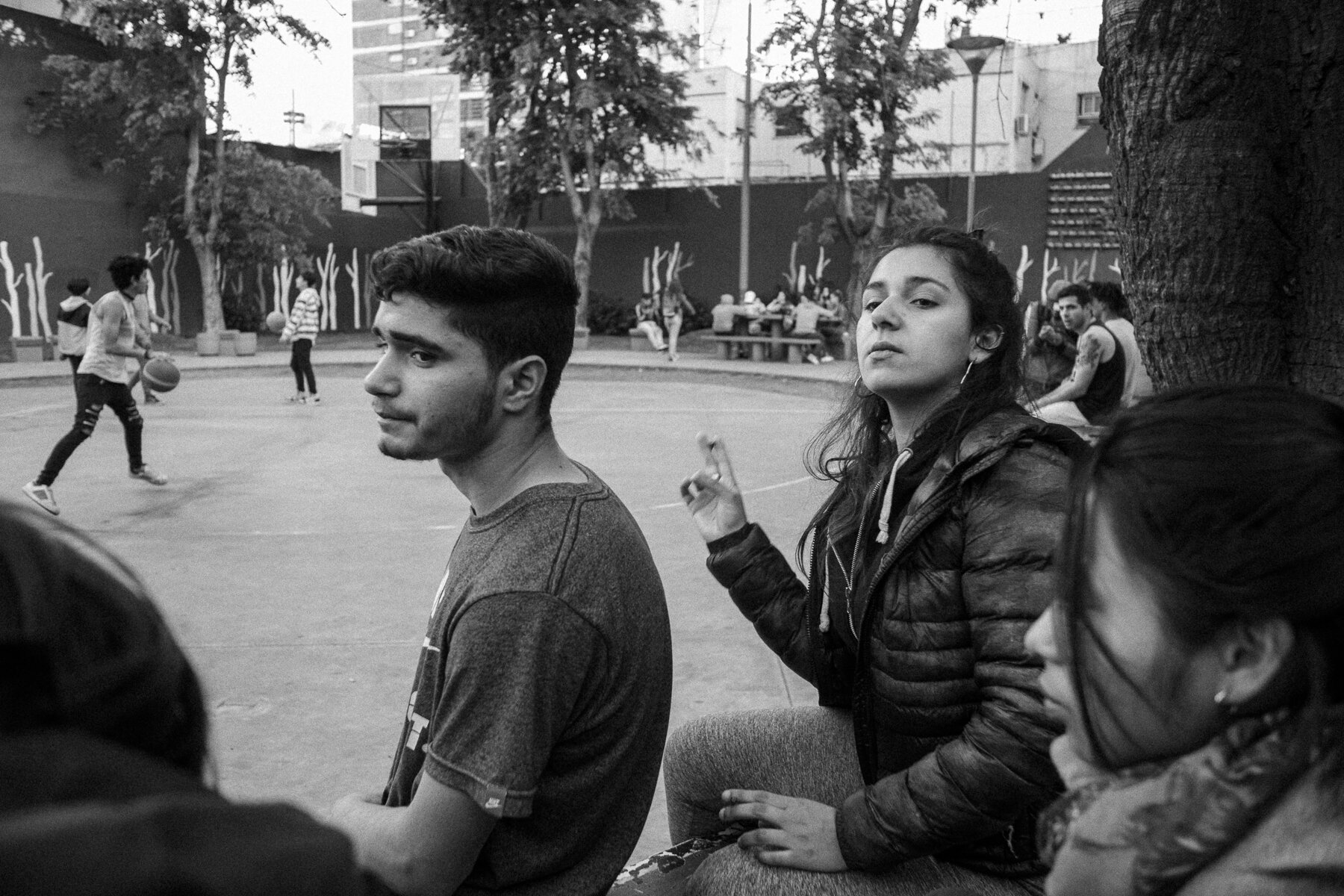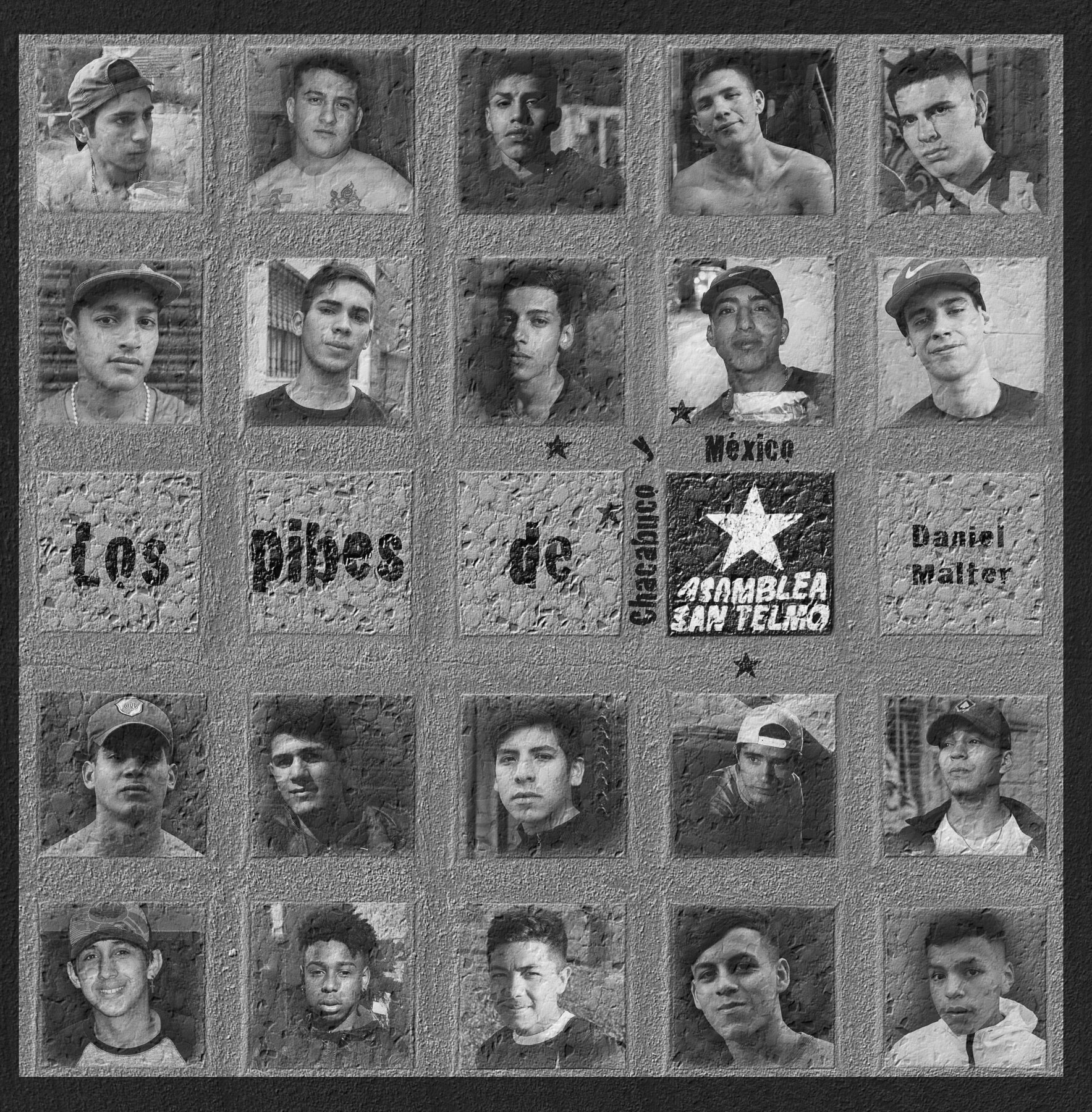





































Los pibes de Chaca y México are a large group of young men coming of age in San Telmo, Buenos Aires. They identify strongly with their street corner at most fifteen minutes walking distance from Plaza de Mayo and the presidential palace. Los pibes come together on the street every night to wind down, forget about their problems, or get away from "la toxica" (the girlfriend) often until the wee hours, experiencing all the emotional convolutions of youth.
They spend their time playing football, talking, smoking, drinking, listening to music, or just hanging out. Participation is fluid. Everyone knows everyone else. The barrio is small. If there is nothing going on at one's own corner, one can always join the guys at another if one is in good standing. Trust is a rare commodity. Everyone nicks lighters and nobody gives any borrowed amount of money back tomorrow, as promised. Robberies and violence are commonplace, although other barrios and the villas are more affected. Fist fights rank highly in young men's conflict resolution arsenals.
The country is in a deep economic crisis. Finding and maintaining work is difficult, in particular for young people and the least qualified. At least fifty percent of children and adolescents live in poverty. Twenty percent of the population depend on government aid. The tristesse resulting from these conditions makes people susceptible to substance abuse. In Argentina youth growing up poor are not the margins of society. They are the mainstream.
However, what tells more about los pibes' character is their ability to welcome a random stranger who does not speak their language and is much older than them, keep him safe, and make him part of the group, as if that were the most normal thing in the world.
The pictures in this gallery are an excerpt from a much larger body of images. Related works: Bruce Davidson "Brooklyn gang" (1959), Tish Murtha "Youth unemployment" (1981), Tish Murtha "Elswick kids" (1978), Toby Binder "Wee Muckers" (2019), Jacob Riis "How the other half lives" (1890), Nan Goldin "The ballad of sexual dependency" (1986)